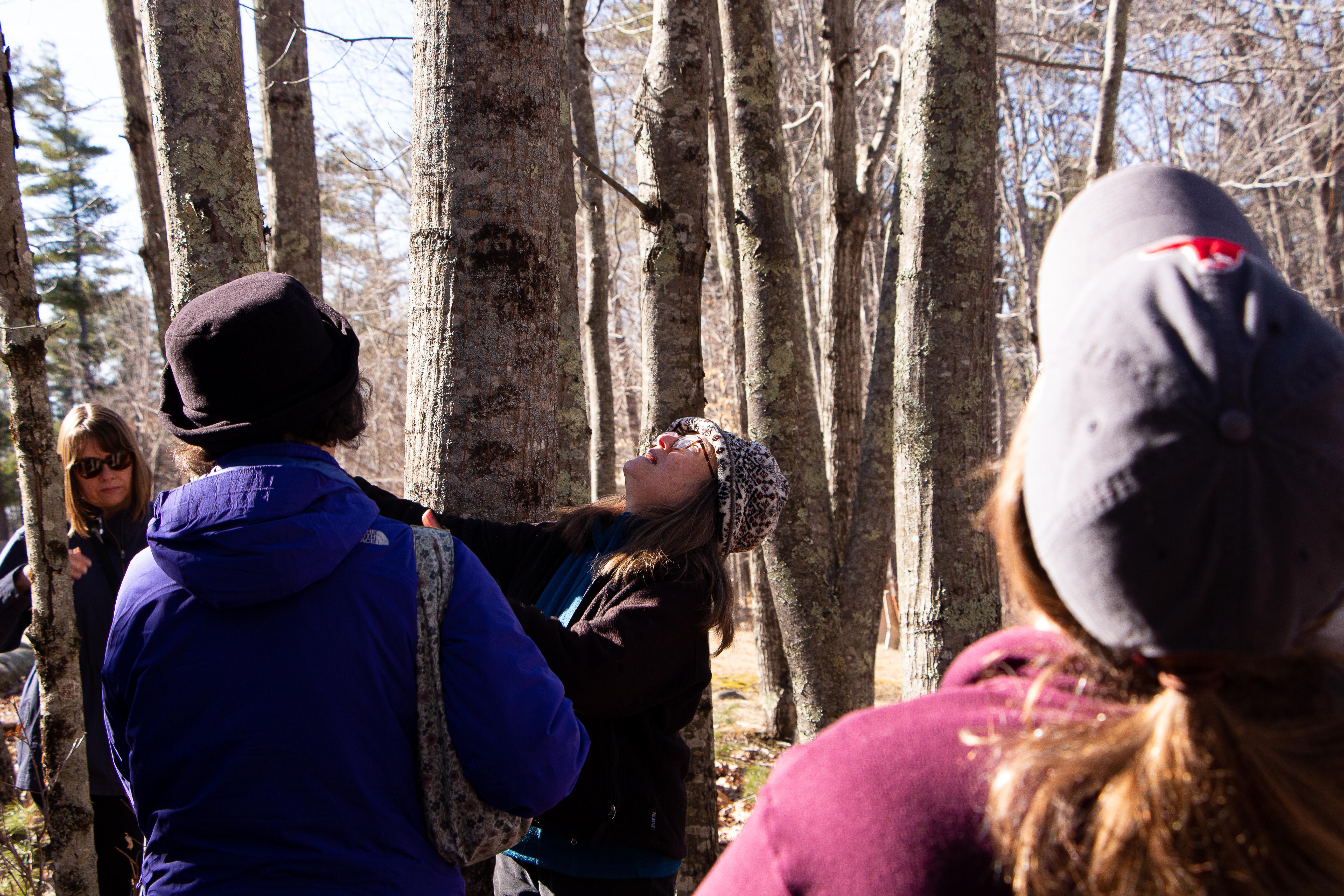
Photo: Sophie Oehler
Author’s Note: While the following column uses the term “women” to describe the audience present at the Women’s Landowner Summit, the team behind the event would like to emphasize that Women in the Woods programming is intended for all marginalized genders, including women, women-identifying individuals, and non-binary/gender non-conforming people who are comfortable in a space that centers the learning experiences of women.
The energy in the main conference room at the Geneva Point Center in Moultonborough, NH feels like it might be able to, at the very least, register on the Richter scale, if not lift the building out of its foundation and into the sky.
It’s March 8th, International Women’s Day and — coincidentally, though appropriately — the first ever Women’s Landowner Summit, hosted by the Women in the Woods program and organized by a partnership of UNH Cooperative Extension, NH Timberland Owners Association (NHTOA), the Natural Resource Conservation Service (NRCS), and the Society for the Protection of New Hampshire Forests (Forest Society).
“The Women in the Woods project exists to support women landowners and women who steward or manage lands, with the education, resources and support they need to make informed decisions about their forest lands,” says Hayley Andreozzi, Wildlife Conservation State Specialist with UNH Extension and a member of the organizing team behind the summit.
The summit hopes to build off the mission of its parent organizer by connecting women landowners, not only with education opportunities, but also with one another, in hopes of fostering continuing relationships and support systems for female stewards in common geographic regions, acreage size, and management interests.
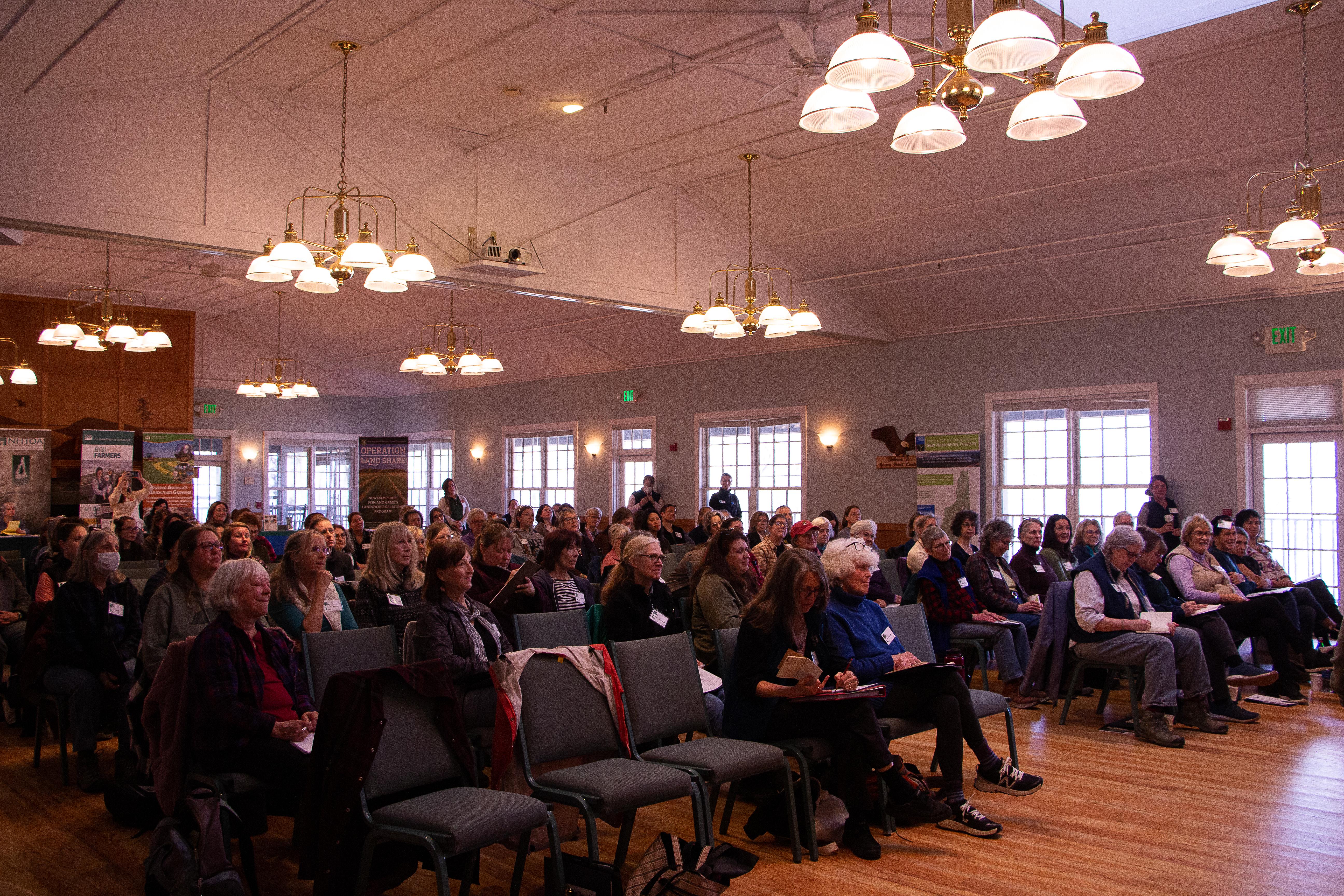
“Here in NH, we rely on private landowners to manage the vast majority of our forests in the state,” says Andreozzi, “It’s important to make sure we’re supporting that audience, specifically women landowners as they become more proportionally present in that landowner base.”
New Hampshire is 81 percent forested, the second most forested state in the country, with 75 percent of that forestland being managed by private landowners. And while historically, nationwide, private landowners have been men, female landowners and stewards are rising in number — the percentage of family-owned forests where women were the primary decision maker doubled from 11-22 percent between 2006 and 2013.
At the Women’s Landowner Summit (WLS) alone, 8,626 acres of NH forestland is represented by 100 women landowners.
“My favorite part of being a landowner is having autonomy over the decisions that get made about our piece of land, and having power to make decisions that align with my values,” says Lucy Koup, one of the 100, and a proud steward of a half-acre in Plymouth which she manages to support the growth of native plants and her seasonal vegetable garden.
An important distinction to make about this summit is that it isn’t just for women managing hundreds, or even tens of acres. Many women in attendance are operating with similar plot sizes to Koup. There are even many women present who have yet to purchase land.
Valerie Connolley, who at 21 is one of the youngest attendees of the summit, is one of those women, and is using this opportunity to get her feet under her before she begins to look into buying land.
“I was really passionate, but really uneducated about the process of buying and owning land,” she says, “At this summit, I was able to say ‘okay, slow down, you’re applying for these reasons.’ It helped to bridge that gap between the fantasy of owning and taking care of land, and actually doing it.”
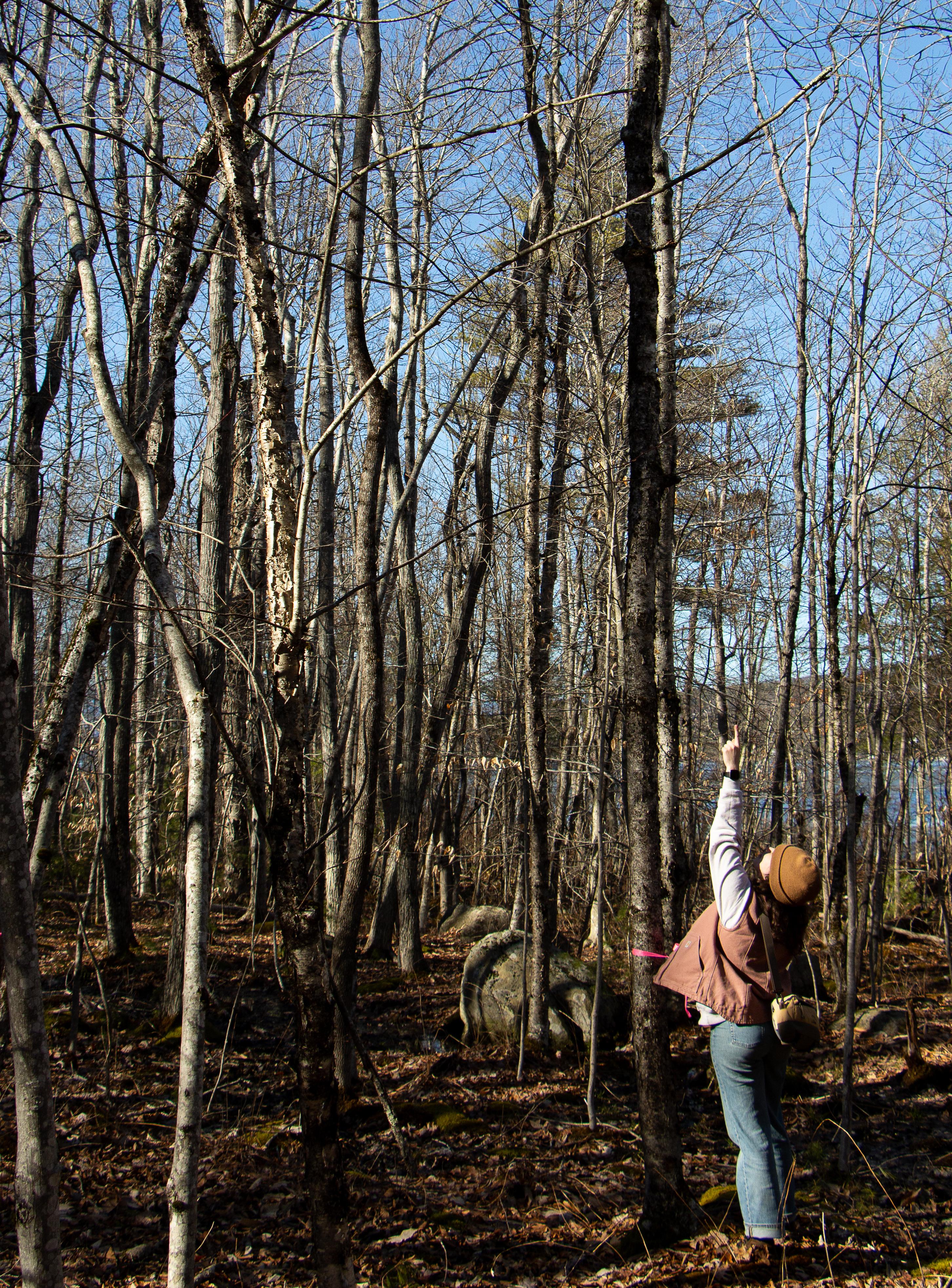
One of the ways in which the summit aims to inspire its attendees is through a women landowner panel: an hour-long conversation with four female land managers from a range of backgrounds, areas of interests and experience with land management.
Rachel Dandenau, who owns 37 acres on her farmstead in Stark, serves as one of these panelists. Her portion of the conversation is highlighted by her anecdotes about the Nigerian Dwarf Fairy goats she keeps on her farm, and her two sons (7 and 4) who have both been wielding axes since they were 2.
“Being a mom landowner allows me to really incorporate the boys in management and support their exploration and love of nature,” she says to me later, “It’s important to me to raise boys into being men who see women as capable.”
Capability is at the heart of the mission of the Women’s Landowner Summit. According to the Women in the Woods Needs Assessment completed by UNH Cooperative Extension in 2023, women are less likely to take management action on their land due either to feelings of inadequacy or unintelligence in land management, or to feelings that land management hasn’t historically been “for us.”
As a result, 68 percent of the women who responded to the needs assessment survey were taking a passive approach to managing their land (i.e. infrequent management activities or changes being made to the property). Twenty four percent of these respondents stated that lack of training in best management practices was one of their biggest challenges in managing their forestland, while 22 percent attributed it to lack of resources and tools. Another 20 percent named lack of confidence or comfort in their ability to manage their land as a prime obstacle.
“Giving women the space to learn in an environment that is for them really allows them to flourish, explore and ask questions in a way that some don’t always feel comfortable doing,” says Hayley Andreozzi, “I think a lot of women feel more comfortable learning in and from groups of other women.”
“I think it made the experience more special,” says Lucy Koup, “Anytime you get a group of women together like that, it’s great to see the strength and collective knowledge of women.”
During the summit, there are eight workshops for women to choose from. Topics range from Timber Harvesting 101 (led by the Forest Society’s own Managing Forester Wendy Weisiger), Inventorying and Monitoring Wildlife on Your Land, and Winter Tree and Shrub ID. The selection of classes is intended to provide an all-encompassing look at what may be needed to successfully manage land, while providing resources that landowners can refer to when the time comes to apply their knowledge.
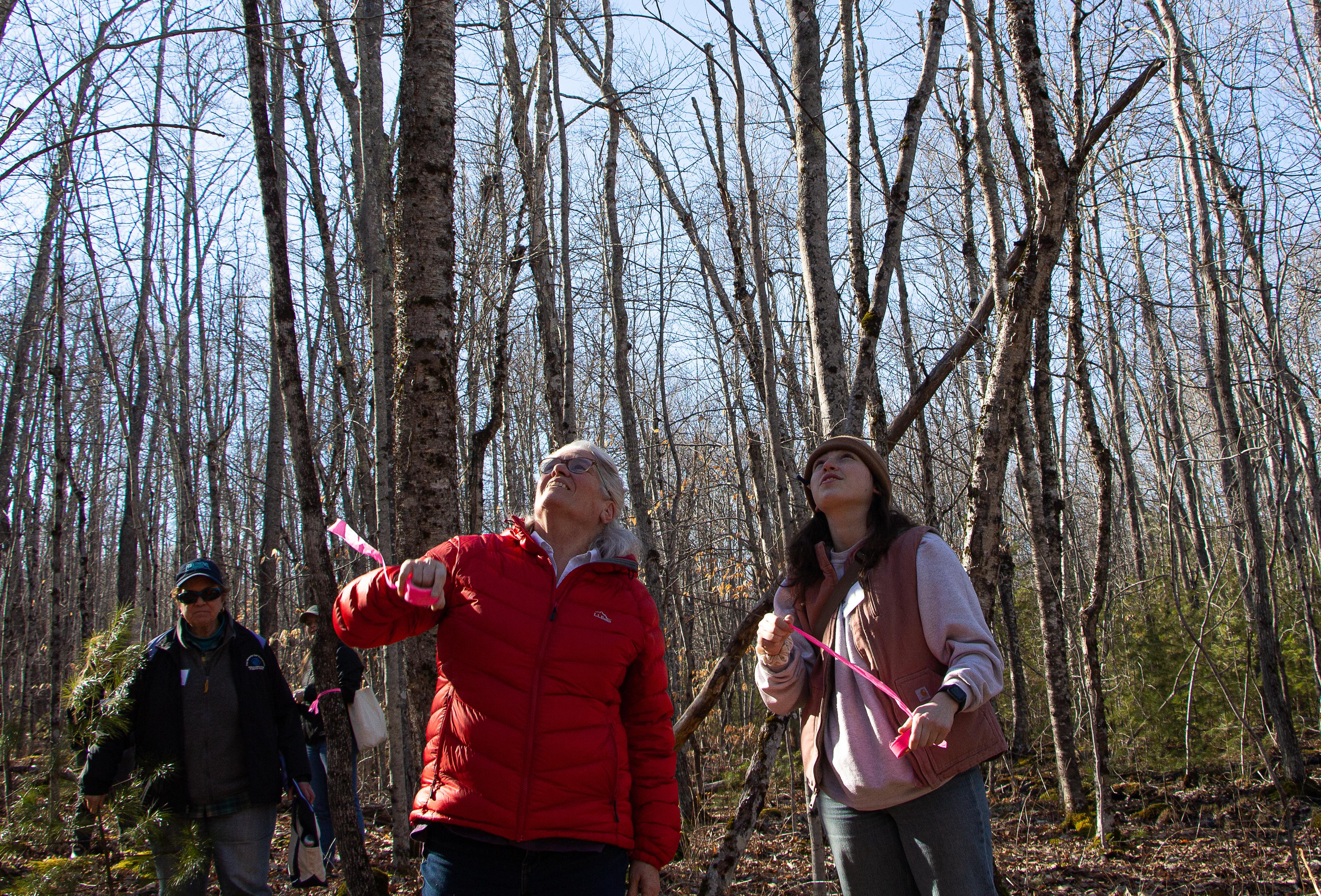
Additionally, the staff behind the summit wanted to create opportunities for personal connections to form between the landowners so that they could have a network of people to rely on.
“There’s a lot of value to women connecting with and inspiring other women,” says Rachel Dandenau, “As women, we’re thinkers. We hold things in the back of our mind and think, ‘how can I apply this in my own life?’ It’s like a pebble creating a ripple in a pond. At the summit, there were so many opportunities for those pebbles.”
While circulating through the many rooms and sessions at the summit, I was continuously struck by those rippling moments. But what created the biggest wave for me was the collective pride that filled each room. Pride in our state, in the work being done, in the knowledge being shared, but above all, pride in each other.
There’s a strange perception about identity-specific programming, whether focused around women or other affinity groups, that by designating it solely for one identity, it becomes about devaluing other non-identifying groups. That couldn’t be further from the truth.
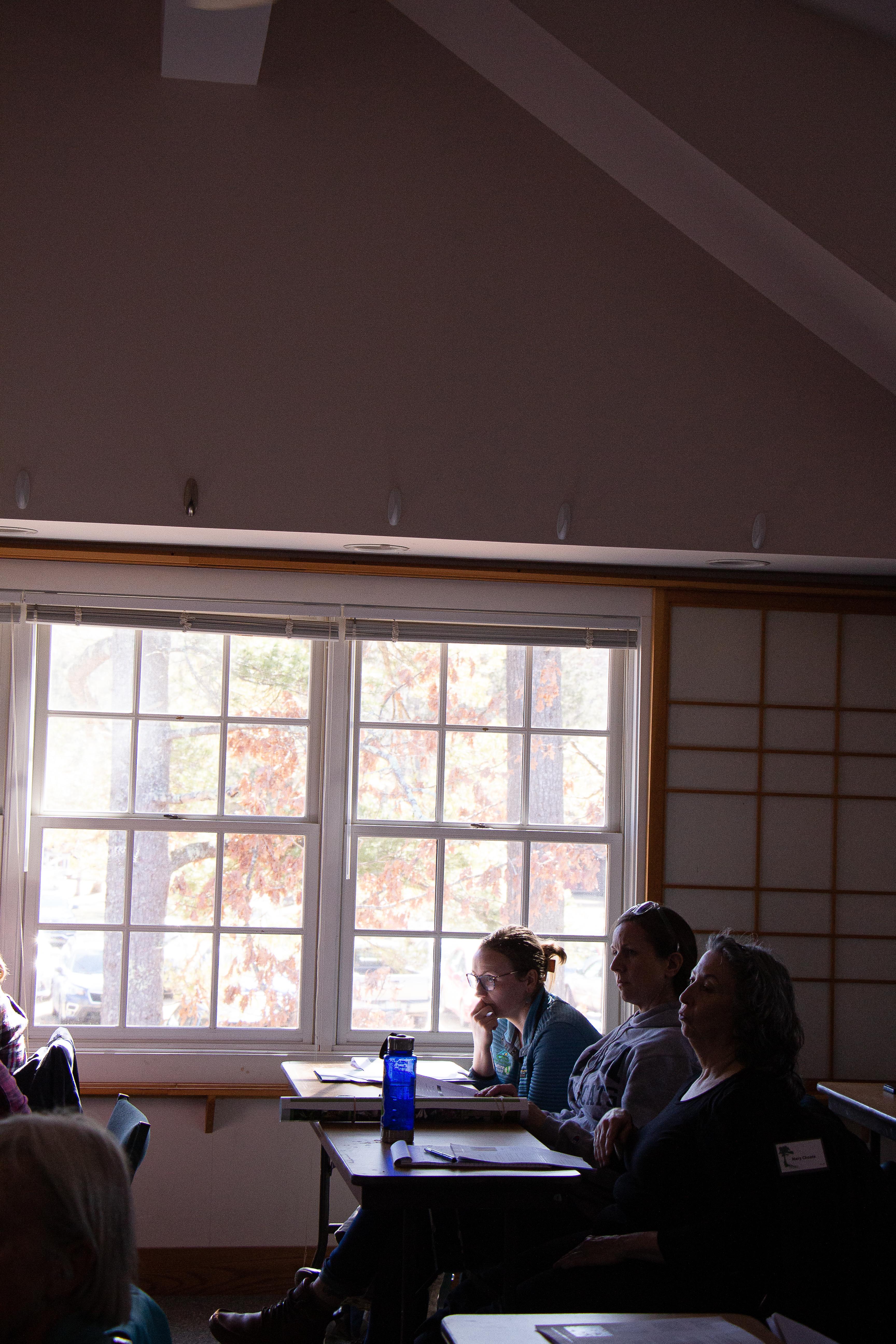
There wasn’t a moment at the Women’s Landowner Summit where I heard anyone complaining about men. There wasn’t time. And when we left at the end of the day, the thought furthest from my mind was about hating men. Instead, all I could think about was how much I love women.
I love the woman who pointed out a bald eagle flying overhead while our group examined tree stands for suitable firewood timber, saying she hated to interrupt but she thought everyone might like to see it. I love the woman who stood up before the closing address and asked who the other landowner from her town was. I love the women who applauded for their classmate when she correctly identified which trees should be cut in a selective harvest.
But above all, I love that 125 women took the time away from the many other roles that we hold as women to come together, to learn, and to celebrate one another, proving that even if the rest of the world doesn’t seem to want to do so, we’re perfectly capable of doing it ourselves.
To learn more about Women in the Woods, and to sign up for future programming, visit the UNH Cooperative website.
A version of this ran in the Manchester Union Leader on May 3, 2024.
